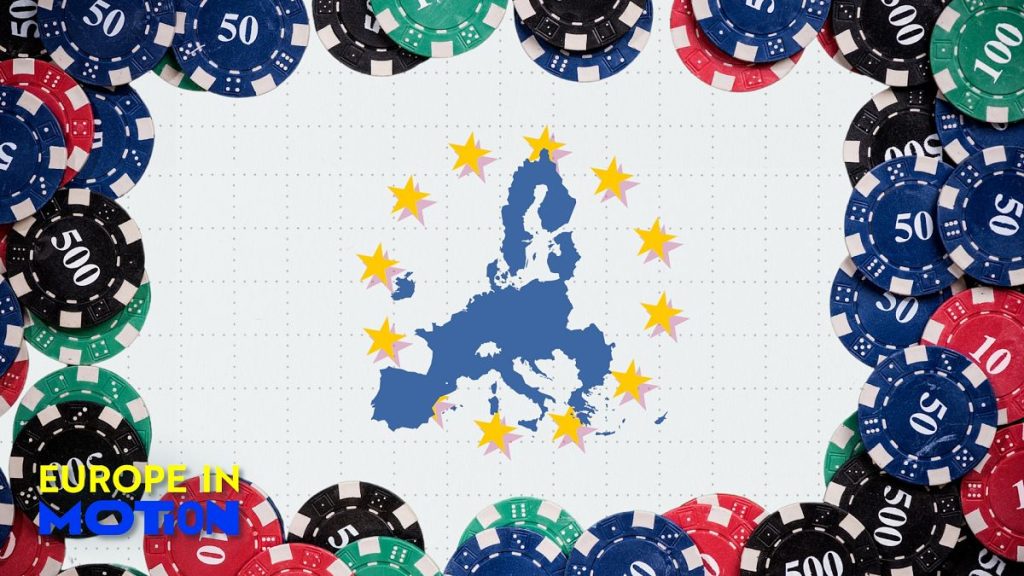The Booming European Gambling Market: A Double-Edged Sword
The European gambling market is experiencing a period of significant growth, particularly in the online sector. Projected to reach €137 billion in gross gaming revenue in 2024, the market is witnessing a substantial shift towards digital platforms, with online gambling accounting for 40% (€55 billion) of the total revenue. This surge in online gambling, fueled by the COVID-19 pandemic and the subsequent closure of physical casinos, has solidified the position of digital platforms as a dominant force in the industry. Sports betting and lotteries are poised for the most robust online expansion, with projected compound annual growth rates of 8.6% and 8.4% respectively through 2029. Major sporting events like the European Football Championship and the World Cup serve as significant drivers of online sports betting activity, contributing to the segment’s overall growth. Within the broader market, lotteries command the largest share at €38 billion, followed by betting at €33 billion, casinos at €30 billion, and gaming machines at €26 billion. This growth trajectory underscores the evolving landscape of the European gambling market and the increasing preference for online platforms among consumers.
The Dark Side of Entertainment: Problem Gambling and Addiction
While gambling serves as a popular form of entertainment for many, it also presents a significant risk of addiction. Problem gambling and, in severe cases, gambling addiction, pose a growing concern across Europe, with rates varying significantly by country. A 2022 study by the European Gaming and Betting Association (EGBA) revealed problem gambling rates ranging from a low of 0.3% in Ireland to a high of 6.4% in Latvia. Portugal, in particular, has witnessed a concerning rise in reported online gambling addiction cases, with requests to gambling helplines increasing from 39.58% to 48% between 2023 and 2024. This alarming trend highlights the potential for harm associated with increased access to online gambling platforms and necessitates effective strategies for prevention and intervention. The EGBA and its members are actively addressing this issue, investing over €140 million in the past four years to support gambling harm prevention initiatives across Europe, including a substantial €61 million in 2023 alone. Recognizing the continuous need for improvement in player protection, the industry is committed to ongoing innovation and enhanced safer gambling measures.
Navigating the Regulatory Landscape: Challenges and Solutions
The European gambling industry faces complex regulatory challenges, including competition from unregulated black market websites and apps operating outside the EU. These platforms pose a threat to player safety and the integrity of the market as they often bypass regulatory safeguards and tax obligations. Estimates from H2 Gambling Capital suggest that a substantial 21% of Europe’s total online gambling activity, equivalent to €13 billion in gross gaming revenue, occurred within the unregulated market in 2023. This highlights the urgency of addressing the issue of black market operators. While stricter enforcement against these operators is crucial, industry experts argue that the most effective approach involves creating an attractive and well-regulated gambling environment within the EU. This strategy aims to incentivize players to choose regulated platforms, thereby minimizing the appeal of unregulated options.
Creating a Sustainable and Responsible Gambling Ecosystem
The dynamic growth of the European gambling industry requires a balanced approach that fosters both economic development and player protection. Ensuring a sustainable and responsible gambling ecosystem demands ongoing collaboration between industry stakeholders, regulators, and consumer protection organizations. Addressing the challenges of problem gambling, combating black market operations, and promoting responsible gaming practices are vital for the long-term health of the market. Continuous innovation in player protection measures, combined with effective regulation and enforcement, will be essential for creating a safe and enjoyable gambling experience for all participants. This collaborative approach will ensure that the industry’s growth contributes positively to the European economy while minimizing potential harms.
The Future of European Gambling: Striking a Balance
Looking ahead, the European gambling market is poised for continued expansion, particularly in the online sphere. However, this growth must be managed responsibly to mitigate the risks associated with problem gambling and unregulated operations. A robust regulatory framework that adapts to the evolving digital landscape, coupled with ongoing investments in harm prevention initiatives, will be critical for the industry’s sustainability. Striking a balance between market growth and player protection will ensure a vibrant and responsible gambling ecosystem that benefits both consumers and the broader European economy. This will require ongoing dialogue and cooperation between all stakeholders to navigate the complex challenges and opportunities that lie ahead.
The Importance of Responsible Innovation
The future of the European gambling market hinges on responsible innovation and a commitment to player well-being. As technology continues to evolve, the industry must proactively adapt its safeguards and prevention strategies to address emerging risks. This includes developing innovative tools and technologies to identify and support individuals at risk of problem gambling. Furthermore, fostering a culture of responsible gaming within the industry and promoting responsible gambling practices among consumers is paramount. By prioritizing player protection and responsible growth, the European gambling market can ensure its long-term viability and contribute positively to society. The industry has the opportunity to become a model for responsible entertainment, demonstrating that economic success and social responsibility can go hand in hand.














